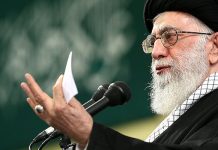Now that the World Cup is over, we can take a step back and review the event in the round.
Here are ten lessons we might draw from the Qatar tournament.
1. Rough play doesn’t pay. Robust refereeing can make a difference by deterring overly aggressive tackles and dangerous play. By and large referees intervened – if not entirely consistently then at least with sufficient gusto – to act as a due deterrent, awarding free kicks and penalties (some game changing) and issuing yellow cards. And only in the closing minutes of one game did tempers really fray.
2. Conversely, play-acting still happens. True, there seems to have been less of it than 20 years ago; but it’s not stopped entirely, and it’s poor sportsmanship. The next Best FIFA Football Awards is due to take place in a few weeks. FERW is tempted to separately add to the ceremonials by ourselves announcing Actor of the Year for the footballer who has taken the most obvious dive.
3. Taking the knee is getting old. FERW wrote to FIFA encouraging its key committee to authorise a banner, as an alternative to players making a gesture associated with a controversial political movement. Given the origin of the gesture, the odd sight of England players taking the knee while their US counterparts did not underlined that the time has come to move on and do something different – and that’s best done off the pitch itself.
4. Armbands were a distraction. The unilateral decision by several European teams to send a message via their armbands was only ever going to end in a showdown because it was so obviously against the rules. By then buckling at that point, the teams distracted from the message they wanted to send, even while encouraging others in the stadium to wear their own political armbands on another issue. All of this was predictable.
5. A silent protest showed the real meaning of courage. By contrast, the Iranian team keeping quiet during the playing of their national anthem before their first match showed how to run a dignified, subtle protest. They were responding to a system where politics and oppression is already brought into the stadium (through exclusion and segregation on the grounds of sex). The subtle statement came with a real threat to players and to their families.
6. The jury is still out on the workers issue. The subject was swept under the carpet when the host bids were initially made; but the new FIFA management team then made it an issue and extracted changes in the law from the Qatari Government. This shows that football can be a force for social change and for raising standards. But it remains to be seen if these changes are, as we hope, enduring. A bar has been set.
7. Success comes through team work. Matches this time round have shown that being one of the very best players in the world is not enough to win your country the cup. Star players have only succeeded where they worked well with their team mates, more visibly so we suggest than in previous years. This tournament has been an excellent reminder of the value of comradeship, teamwork, and cooperation rather than just have-a-go individualism.
8. Unexpected knock outs. The surprise successes of lower profile countries – Morocco’s progression, Japan beating Spain and Germany, and even simply Wales qualifying – proves that football is a global sport and one that is developing all the time. There are no hard guarantees once you’re on the pitch. That’s part of the attraction of the game globally.
9. Refs count. Obviously, a good referee makes for a good game. But this tournament broke new ground with the high profile part played by women, albeit in small numbers. And then there was THAT famous goal by Japan, where the VAR ruled that the ball was still in play. We might now expect some discussion around those rules, but what has become clear is that the video screen as a feature of the sport has taken on a critical, evidential, and enduring role – albeit at some cost to the game in terms of speed and flow and encouraging appeals for review (perhaps even at some cost to the personal authority of the referee).
10. The corruption scandals still overhang FIFA. It will take years to shake off the disgrace. But, notwithstanding an odd speech by Infantino, it does seem that senior people in the organisation know the problems they face from the institution’s lost credibility – even as new ones emerge in the shape of (currently isolated) calls for FIFA to be folded entirely. There is still much work ahead.











